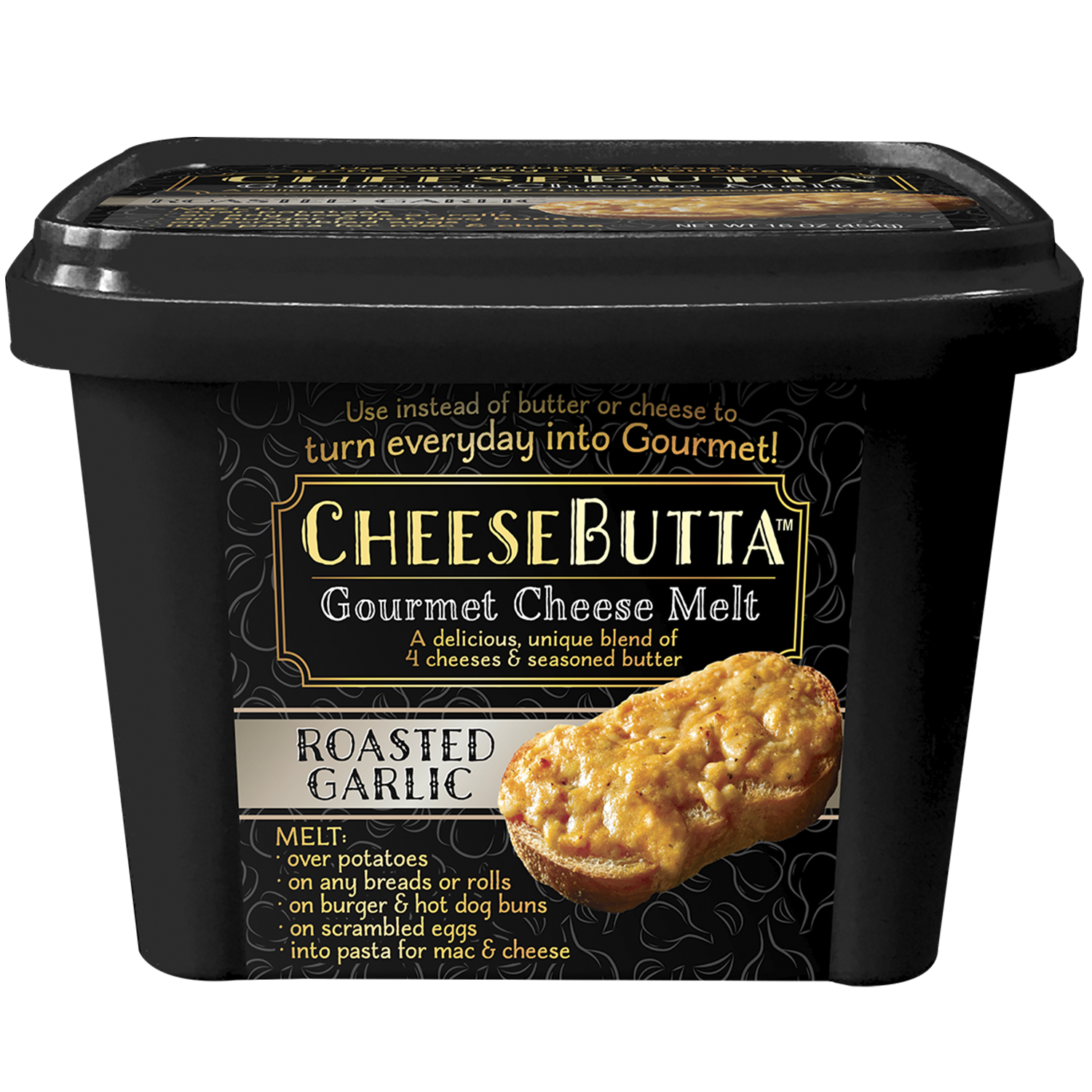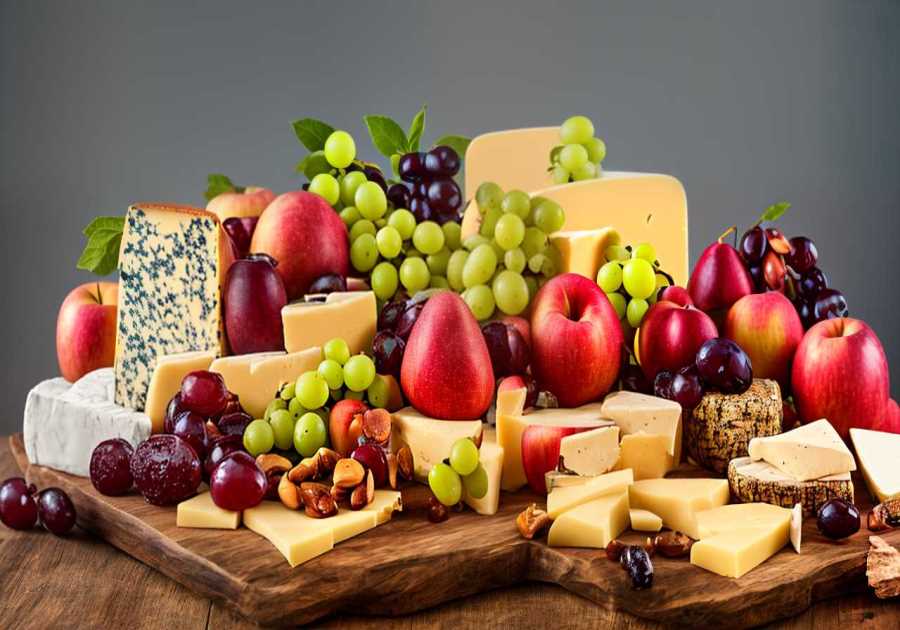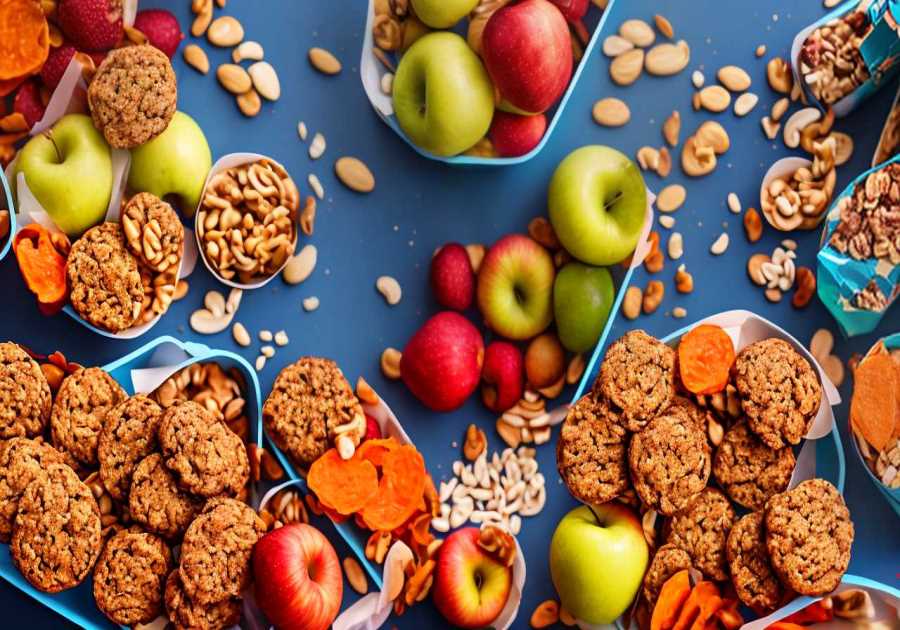
What Is the Healthiest Snack Cheese?
The healthiest snack cheese for you is likely cottage cheese, known for its low fat and high protein content, making it a great choice if you're looking to maintain or lose weight. Rich in calcium and supporting muscle repair, it's perfect after a workout or as a fulfilling snack any time of the day. Opting for cottage cheese allows for fun and nutritious pairings, especially with fresh fruits or whole grain crackers. It's also beneficial for your gut due to its probiotic properties. By incorporating this cheese into your snack routine, you'll enjoy both flavor and nutritional benefits, leading to potential improvements in your overall diet.
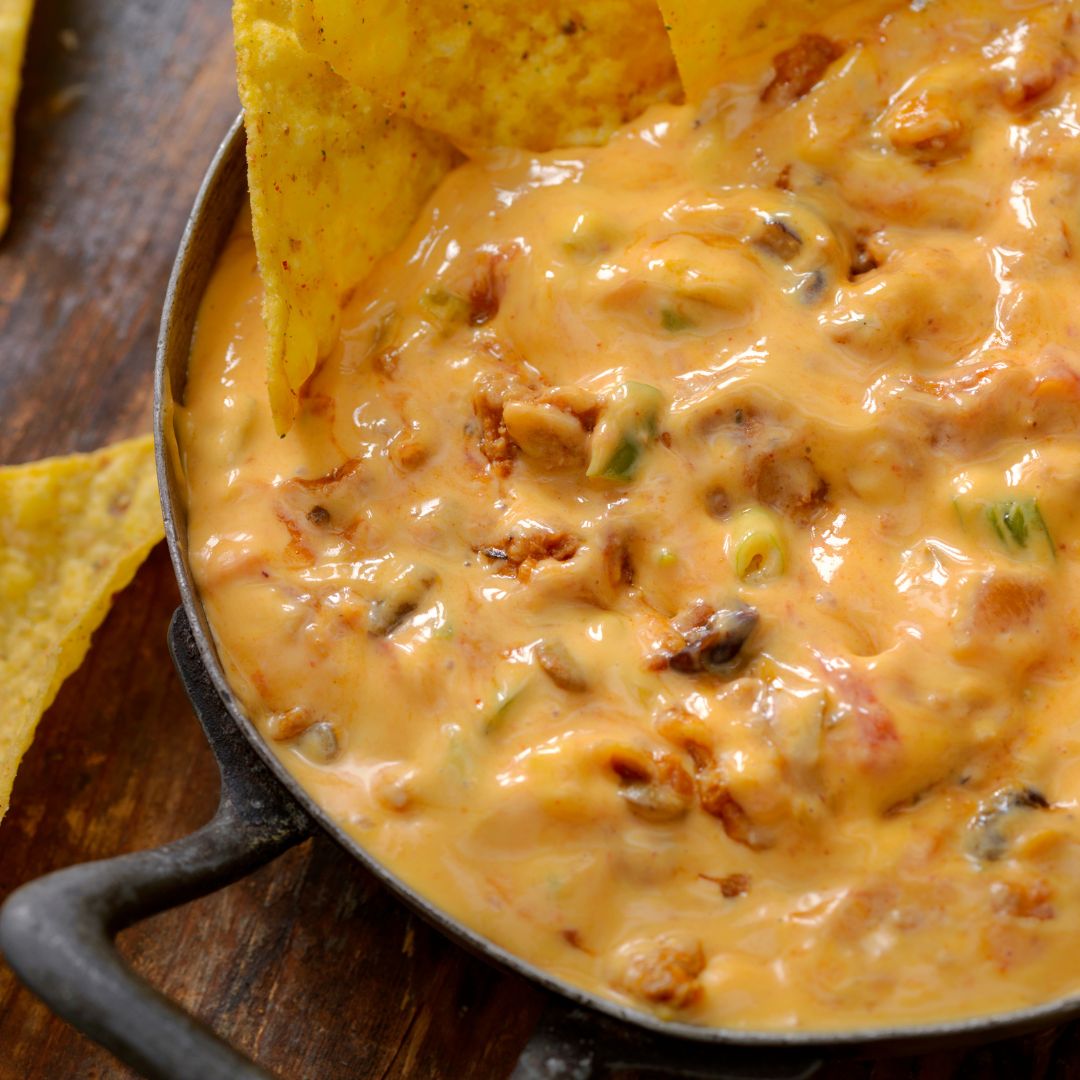
Understanding Snack Cheese Nutrition
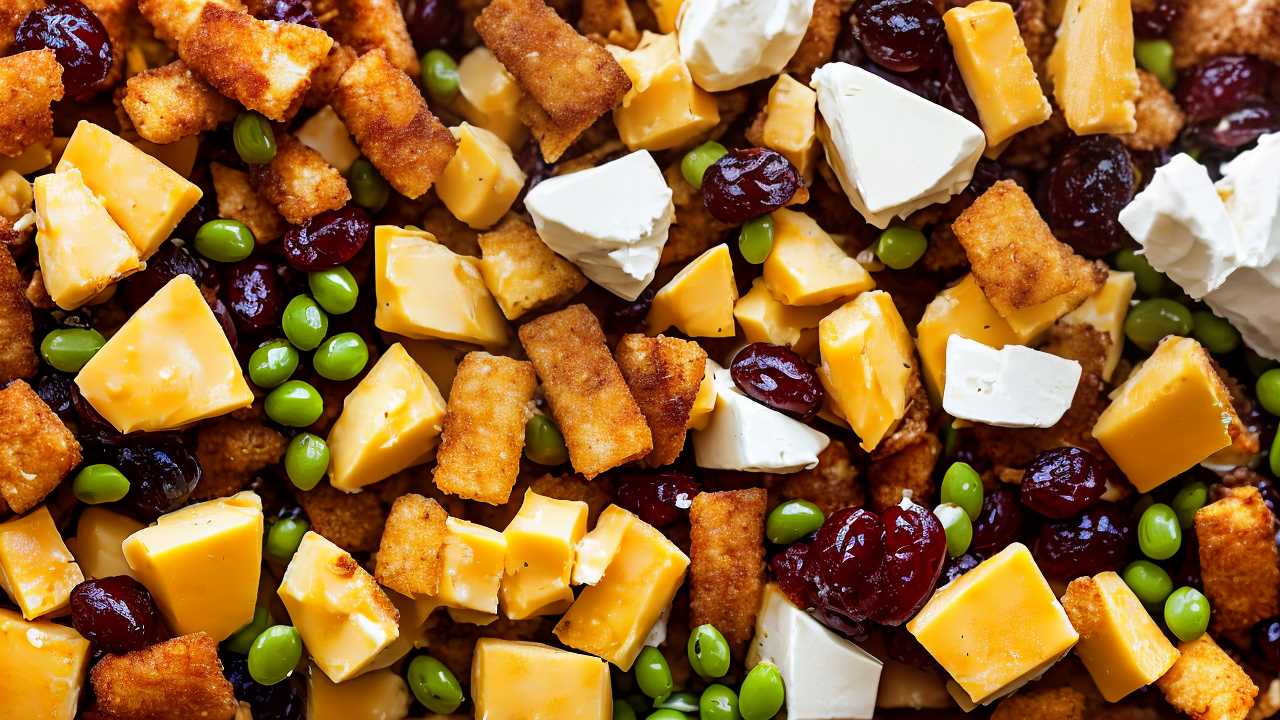
When choosing snack cheeses, it's essential to consider their nutritional content to align with your health goals. Understanding the nutritional labels on these cheeses can guide you in making choices that fit your dietary needs and preferences. Nutritional labels provide vital information such as calorie content, fats, proteins, carbohydrates, and sodium levels. By examining these details, you're better equipped to select cheeses that contribute positively to your diet rather than detracting from it.
Notably, selecting cheeses rich in beneficial probiotics can also support gut health, enhancing the overall benefits of your snack choice.
Portion control is another critical aspect when indulging in snack cheeses. It's easy to overlook the serving size, which can lead to consuming more calories and fats than intended. Most cheeses provide this information on the packaging, allowing you to adjust your intake accordingly. For instance, if a label indicates that a serving size is one ounce, sticking to this can help manage your calorie intake and maintain a balanced diet.
Being mindful of the types of fats in cheese is also important. While cheese is a good source of calcium and protein, it can also be high in saturated fats, which aren't ideal for heart health if consumed in large amounts. Choosing lower-fat options or eating smaller portions can mitigate this concern.
Lastly, consider the sodium content. Cheeses can vary significantly in their sodium levels, and high sodium intake is linked to increased blood pressure. Opt for lower sodium varieties to cater to health-conscious dietary plans.

Top Health-Conscious Cheese Options

Navigating through the myriad of snack cheese options can be daunting, but focusing on health-conscious choices will serve your dietary goals well. To aid you in this journey, let's explore some top picks that balance flavor and nutrition.
First on the list is cottage cheese. Low in fat and high in protein, it's a versatile option that pairs well with fruits like berries or slices of peach for a refreshing snack. Its creamy texture also makes it a perfect base for healthier dips.
If you're looking for a unique twist, consider adding gourmet cheese melts from CheeseButta® to your cottage cheese for a richer flavor profile without compromising on health.
Next, consider part-skim mozzarella. This cheese is famous for its use in caprese salads but works just as well as a snack. It's lower in calories than many other cheeses and pairs beautifully with tomatoes and basil for a quick, nutritious bite.
Feta cheese, often associated with Greek cuisine, is another excellent choice. Rich in flavor, it can be crumbled over salads or mixed into quinoa dishes. Because of its strong taste, a little goes a long way, helping to keep your calorie intake in check.
For those who enjoy a sharper flavor, Swiss cheese is a standout. It's not only lower in fat compared to many other snack cheese varieties, but also provides a good amount of calcium.
Try pairing thin slices with whole grain crackers and pear slices for a satisfying midday snack.

Benefits of Low-Fat Cheeses

Exploring the benefits of low-fat cheeses, you'll find they aren't only lower in calories but also beneficial for heart health. When you opt for low-fat varieties, you're making a choice that supports a healthier lifestyle, particularly if you're mindful about cardiovascular wellbeing. These cheeses typically contain less saturated fat, which is advantageous because high intake of saturated fats can be linked to higher cholesterol levels and an increased risk of heart disease.
Additionally, for those following specific diets, incorporating low-fat cheese into meals can be beneficial as it aligns with keto-friendly guidelines, offering flexibility without compromising dietary goals.
Low-fat cheeses also boast impressive nutrient profiles. They're rich in essential nutrients like protein, calcium, and vitamin D, while having a reduced fat content. This makes them an excellent option for maintaining strong bones and muscles without overloading on fats. Moreover, you don't have to sacrifice flavor for health; many low-fat cheeses still provide the satisfying taste and texture you love.
Incorporating low-fat cheeses into your diet is straightforward and versatile. You can use them in salads, as a topping on whole-grain crackers, or melted in a vegetable omelet, adding nutritional value without excessive calories.
This adaptability makes them an ideal choice for serving others, whether it's preparing snacks for a family gathering or offering healthier alternatives at a community event.

Impact of Cheese on Weight Management

Considering the benefits of low-fat cheeses, it's important to examine how cheese, when incorporated wisely, can play a role in weight management. You might often wonder if cheese can fit into a healthy diet without tipping the scales. The answer lies in the choices you make and how you incorporate this tasty ingredient into your daily routine.
Cheese isn't only a good source of protein but also rich in calcium, which can aid in maintaining a healthy weight balance. However, the key to including cheese in a weight management plan is portion control.
Here's how you can do it:
- Choose Wisely: Opt for cheeses that are lower in fat and calories but still provide a good amount of calcium. This helps in satisfying your cravings without overindulging.
- Measure Portions: It's easy to overeat cheese, so measuring out servings can prevent consuming too many calories. Typically, a healthy serving size is about the size of a pair of dice.
- Balance Your Diet: Incorporate cheese into a balanced diet that includes fruits, vegetables, and whole grains. This ensures you're not only relying on cheese for your calcium intake but also getting a spectrum of nutrients.

Choosing the Right Cheese for Snacking

When selecting the perfect cheese for snacking, it's crucial to focus on both flavor and nutritional value to meet your health goals. Your choice can greatly influence your overall dietary balance, and with a myriad of options available, choosing wisely is key.
Firstly, consider the type of cheese. Hard cheeses like Parmesan are packed with flavor, allowing you to use a smaller amount, which helps with portion control. Soft cheeses such as ricotta or cottage cheese offer a lighter option, often lower in fat and calories, making them ideal for those monitoring their intake.
Understanding cheese pairings can also enhance your snack without adding excessive calories. Pairing a sharp cheddar with apple slices adds a sweet component and increases your fiber intake, complementing the protein-rich cheese. This combination not only satisfies your taste buds but also helps you feel full longer, aiding in weight management.
Moreover, the timing of your snack can influence your choices. If you're looking for a post-workout snack, a slice of Swiss cheese provides essential proteins and fats for muscle recovery. For a late-night option, consider a small portion of mozzarella – its lower calorie count and high calcium content support bone health without overloading on calories before bed.
Always pay attention to serving sizes. Overindulgence is easy, so using pre-portioned slices or weighing your servings can keep your snacking in check.
When you manage your portions, you control your intake more effectively, aligning with your health objectives.
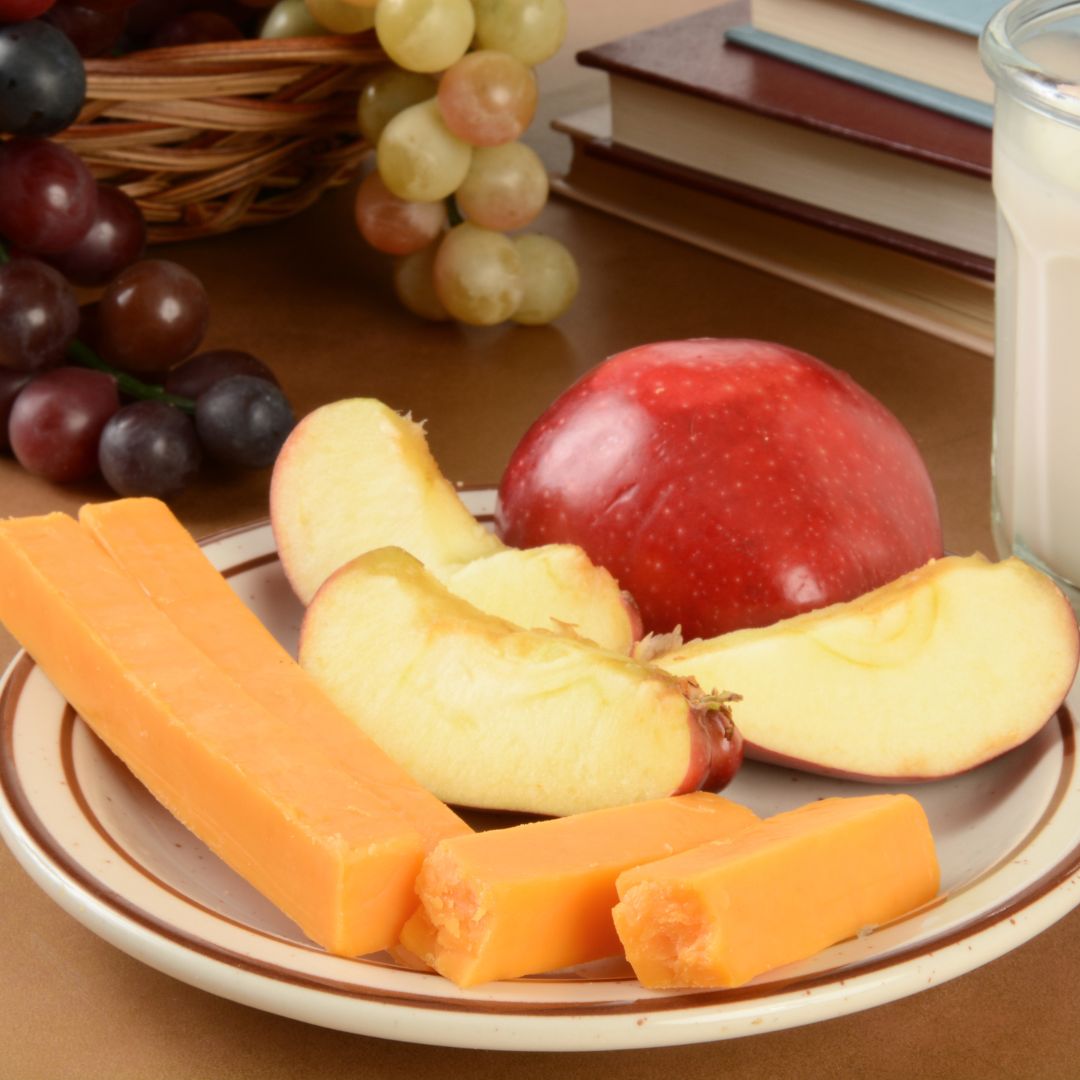
Frequently Asked Questions
Can Cheese Allergies Be Managed While Snacking on Cheese?
If you're dealing with cheese allergies, managing allergy symptoms is crucial.
Consider exploring cheese substitutes like nut-based or soy-based cheeses that mimic the texture and flavor without triggering reactions. Always read labels to ensure they don't contain allergens specific to your needs.
Introducing these alternatives gradually helps determine tolerance and maintains a balanced diet.
How Does Aging Affect the Healthiness of Snack Cheeses?
Aging cheese is like fine wine; both develop richer profiles over time.
As cheeses age, their nutritional benefits can change. The aging process often reduces lactose content, making them easier to digest and enhancing flavors.
However, aged cheeses can also have higher sodium and fat content. You'll need to balance taste preference with health considerations when choosing your snack.
Are There Vegan Alternatives That Compare Nutritionally to Cheese?
Yes, there are vegan alternatives to cheese that hold up well in a nutritional comparison.
Plant-based options like nut-based cheeses or those made from soy provide similar protein levels and essential nutrients. They're also often lower in saturated fats, which benefits your heart health.
When you're considering these options, check labels for added nutrients like calcium and vitamin B12 to ensure you're not missing out on key benefits found in traditional cheeses.
What Role Does Cheese Play in Dental Health?
Cheese plays a significant role in dental health, primarily due to its high calcium content, which is essential for strong teeth.
Research shows that eating cheese can raise the pH level in your mouth, reducing the risk of tooth decay and providing enamel protection.
This benefit makes cheese an excellent snack for maintaining oral health.
Always opt for a moderate intake to balance your overall diet and maximize these dental benefits.
Is Snack Cheese Safe for People With Lactose Intolerance?
If you're lactose intolerant, you can still enjoy snack cheese. Many snack cheese varieties offer lactose-free options, which are specifically formulated to prevent the discomfort associated with lactose intolerance.
When choosing your snack, look for labels that mention "lactose-free." These products provide a safe way to enjoy the creamy goodness of cheese without the digestive upset, ensuring you can serve your health needs effectively while indulging in a delicious treat.
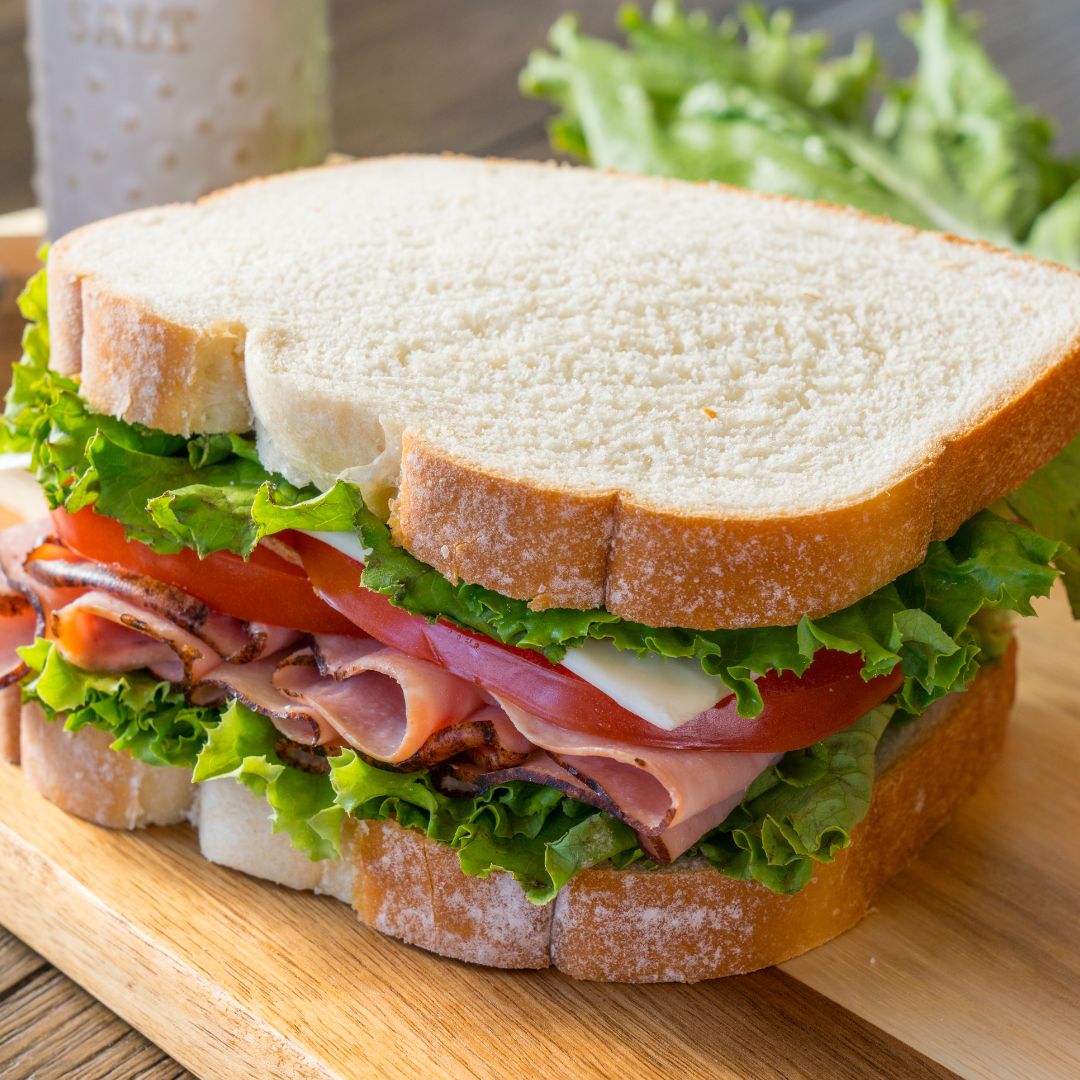
Conclusion
As you explore the aisles, remember that choosing the right cheese for snacking isn't just about indulging your taste buds but nurturing your well-being. Opt for low-fat options to enjoy the rich flavors without the weighty consequences. These lighter delights offer a savvy balance, supporting your health journey while satisfying your cravings. So, make a thoughtful choice, and let each bite be a step towards a healthier, more balanced you.

